The Antarctic ice is unforgiving to stranded ships.
United States Air Force loadmasters dropped an engine piston and casing from approximately 121m above the Ross Sea ice this morning to a British fishing boat which has been stranded in the ice for a week.
USAF Lieutenant Colonel Jim McGann, the New Zealand-based Deep Freeze commander, told Radio New Zealand that repairs using the parts should enable the trawler to sail back to Christchurch.
The C-17 Globemaster III flew out of Christchurch with the 68kg parts at the request of the New Zealand Rescue Coordination Centre, which had been told the Argos Georgia, lost all main engine power a week ago and became frozen in the ice floes off the Ross Ice Shelf, north of Scott Base.
The US Air Force said other options to rescue the ship were either no longer available or would have taken another 10 days, the Seattle Post Intelligencer newspaper reported.
The 36m vessel had been chartered for long-lining for toothfish and is registered in St Helena, an island in the South Atlantic, and owned by the Argos Group, based in the Falklands
The flight crew, from the USAF 446th Airlift Wing and 62nd Airlift Wing, dropped the parts while travelling at a speed of 220km/h just after midnight.
New Zealand is responsible for coordinating rescues and marine safety in the Ross Sea.
Argos Oceanic Ltd of Bermuda, which chartered the vessel for toothfish voyages, was last year fined $13,500 in the Christchurch District Court for spilling fuel oil in Lyttelton Harbour.
The Argos Georgia Ltd fishing company recently joined two New Zealand fishing companies, Sanford Ltd and New Zealand Long Line Ltd, in applying for assessment of the Antarctic toothfish longline fishery in the Ross Sea by the Marine Stewardship Council.
The fishery is made up of 21 vessels from nine countries.
MARITIME NOTES
Try handling these waves!
Ship In Rough Water - Watch more free videos
And then there is the....
Costa de la Luz
New Flame salvage operation reported to be underway off Gibraltar
By m.p.
Jan 6, 2008 - 7:38 PM
The Warrior, a specialised tow boat which flies under a United States flag, arrived on Saturday to assist in the salvage operation for the stricken cargo ship, the New Flame, which has been lying half sunken off Gibraltar since it was hit by a tanker last August. The vessel broke in two in heavy weather on 22nd December.
Titan Maritime, one of the largest companies in the field of marine salvage, is now in charge of the operation to recover the New Flame and its cargo of 42,000 tons of scrap metal.
The Mayor of Algeciras, Tomás Herrera, has meanwhile said that work to clean up La Concha Beach is proceeding well, and said there have been no new spills on the local beaches. The Environment Ministry said last Thursday that a team of 10 personnel from the Coastal Authority remains on standby in the area to take immediate action in the case of any further pollution. The Ministry said 239 tons of polluted material have been removed from the beaches in Algeciras, which authorities in Spain believe came from the New Flame.
Volunteer Efforts...
A volunteer cleanup effort will be held Saturday to help pick up after a tornado tore through northern Boone County on Monday. The cleanup will start at 8 a.m. at the Poplar Grove Fire Station on Illinois 173 in Poplar Grove. Lt. Phil Beu of the Boone County Sheriff’s office released totals for injuries and damage today. Four homes were determined to be uninhabitable, four others sustained major damage and nine homes received minor damage. There were 38 structures, including outbuildings and silos, and nine vehicles that were also harmed by the storm. Four people were injured, none fatally. The most seriously injured was Jeannette Nichols, who sustained broken ribs, broke her collarbone in two places and had a punctured lung, among other injuries. One horse, belonging to George Conley of Capron, was killed.
LASTLY
| Thursday, 03 January 2008200801030500 |
Round-the-world skipper hails 'guardian angel'
Record-breaking British sailor Dee Caffari has been reunited with her "guardian angel" in Wellington.
She embraced Westpac rescue helicopter crewman Dave Greenberg for the first time yesterday after he plucked one of her crew from the Pacific Ocean in a dramatic rescue during the Global Challenge almost three years ago to the day.
Ms Caffari was delighted to finally meet her friend's saviour, who now holds a special place in her heart.
"He is my southern hemisphere guardian angel. I owe a lot to Dave and we will always be friends because of what happened," she said.
"Whenever I am in the water I think of guys like him that make everything okay."
The rescue helicopter flew overhead as the pair embraced, and Ms Caffari remarked that three years ago it was the best sight she could have seen.
The rescue was sparked after John Masters, a crew member on her yacht, was thrown into a cabin when a rogue wave hit the boat off the Chatham Islands. He was later found to have potentially fatal peritonitis.
Mr Masters, a 59-year-old Kiwi-born Essex teacher, who was also suffering from an abdominal infection, was lifted off the yacht by helicopter before being flown the 600 kilometres to Wellington by fixed-wing aircraft for treatment.
The mercy mission, involving four aircraft, was the third-longest-distance rescue in the history of Wellington's Life Flight service.
Mr Greenberg said he looked back proudly on the rescue. "But I hope we never meet again in those circumstances. She is a very remarkable woman, and I wish her all the best in her future endeavours."
Mr Greenberg was invited to launch Ms Caffari's new Kiwi-built 20-metre yacht, Aviva, at Chaffers Wharf. She will race the boat in the Vendee Globe non-stop solo round-the-world race in November. The Ocean 60 yacht was built by Hakes Marine in Seaview, Lower Hutt.
The 33-year-old from Hampshire, the first woman to sail around the world alone going west, is now aiming to become the first to complete the voyage both ways.
She decided to have the yacht built in New Zealand because of the technology and craftsmanship available.
She will spend the few weeks getting acquainted with Aviva, which took seven months to build, before it is shipped to Europe. She will then compete in a race from France to the United States to prepare for the Vendee Globe.
The Open 60s are some of the fastest boats in sailing, created for solo sailors who push their machines to the limit.
"This boat rocks, it is really fast. I will spend the next couple of weeks sailing it to see if there are any issues, but, fingers crossed, it is okay."








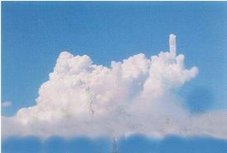
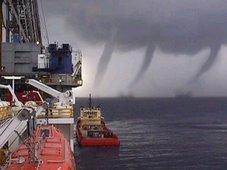
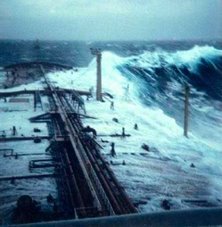
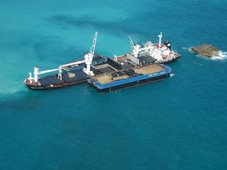
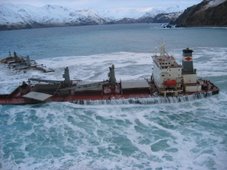
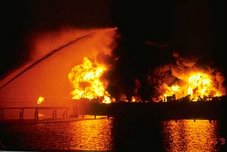
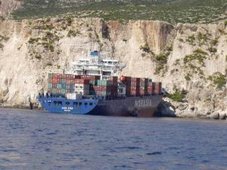
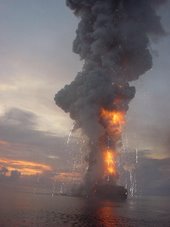

![Validate my RSS feed [Valid RSS]](valid-rss.png)